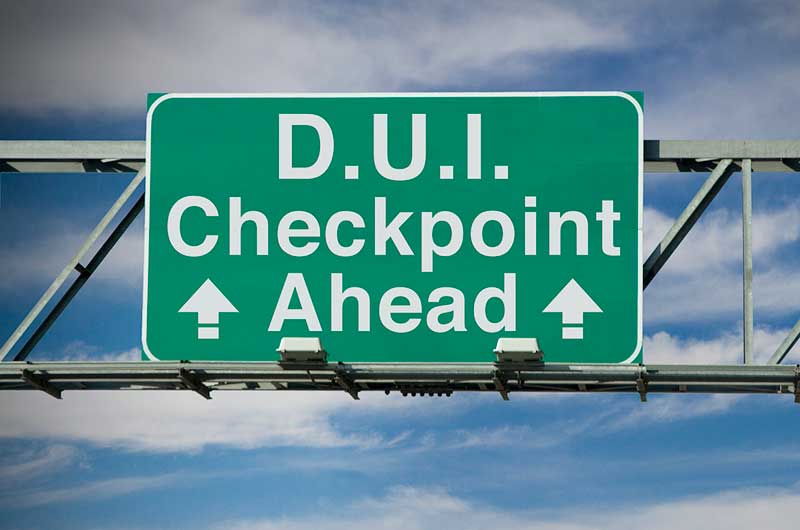Temporary detention of individuals during the stop of a vehicle by the police, even if only for a brief period and for a limited purpose, constitutes a “seizure” of a “person” within the meaning of Fourth Amendment of the US Constitution and Section 20 of Article I of NC Constitution. “Reasonable suspicion” is necessary to make a lawful investigatory stop.
When determining if reasonable suspicion exists under the totality of the circumstances, a police officer may also evaluate factors such as traveling at an unusual hour or driving in an area with drinking establishments. The stop should be based on specific and articulable facts, and the rational inferences from those facts, as viewed through the eyes of a reasonable, cautious officer, guided by his experience and training. A police officer must develop more than an “un-particularized suspicion or hunch” before he or she is justified in conducting an investigatory stop. “Weaving” can contribute to a reasonable suspicion of driving while impaired. However, a defendant’s weaving must be coupled with additional specific articulable facts, which also indicated that the defendant was driving while impaired. Without any additional circumstances giving rise to a reasonable suspicion that criminal activity is about to occur, stopping a vehicle for weaving is unreasonable.
In North Carolina, sobriety checkpoints are established at various places under law. At sobriety checkpoints, a law-enforcement officer may require the driver of a vehicle to submit to an alcohol screening test if the officer has an articulable and reasonable suspicion that the driver has committed an ‘implied-consent offense’ and the driver has been lawfully stopped for a driver’s license check or otherwise lawfully stopped or lawfully encountered by the officer in the course of the performance of the officer’s duties. The implied-consent laws enacted by many states provide that any person who operates a motor vehicle upon the public highways is deemed to have given his or her consent to a chemical test of his or her blood, breath, urine, or saliva for the purpose of finding the alcoholic content of his or her blood, whenever he or she is arrested or taken into custody for any offense involving operating an automobile while intoxicated or under the influence of intoxicating liquor and the arresting officer has reasonable grounds to believe that prior to his or her arrest the person was driving in an intoxicated condition or under the influence of intoxicating liquor. Under such statutes, drivers are deemed to have given their consent when a police officer has reasonable grounds to believe the person was operating a vehicle under the influence, and a refusal to submit to the test may result in the loss of a person’s driving privileges.
If an officer who makes the investigatory stop does not have necessary reasonable suspicion, the stop may nonetheless be made if the that officer receives from another officer a request to stop the vehicle if the other officer from whom the request was received possessed a reasonable suspicion that a criminal conduct had occurred, was occurring or was about to occur. Even if no request was received from the other officer, the collective knowledge of both the officers may form the basis for reasonable suspicion by the officer who makes the stop. Likewise, an officer can also make a lawful stop on the reliable information provided by a witness who saw that the defendant was driving the vehicle under the influence.
Under the Fourth Amendment, a police officer is permitted to conduct a brief investigatory stop of a vehicle and detain its occupants without a warrant. However, in order to conduct a warrantless, investigatory stop, an officer must have reasonable and articulable suspicion of criminal activity. The reasonable suspicion must arise from the officer’s knowledge prior to the time of the stop.


